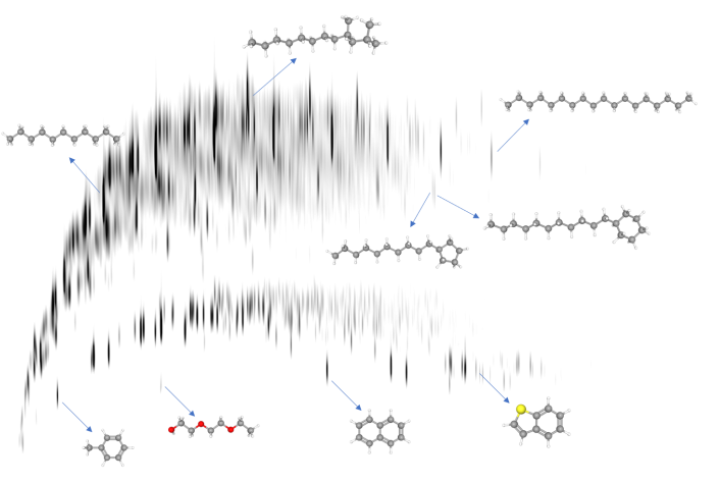
Detailed Analysis of Complex Chemical Mixtures
Complex chemical mixtures (e.g., fuels, environmental air, human breath, pharmaceuticals) are combinations of hundreds or thousands of chemicals, of which the composition is qualitatively and quantitatively not fully known. We use comprehensive two-dimensional gas chromatography (GCxGC) techniques for quantitative and qualitative (targeted and untargeted) analyses of various gas, liquid, and solid samples.
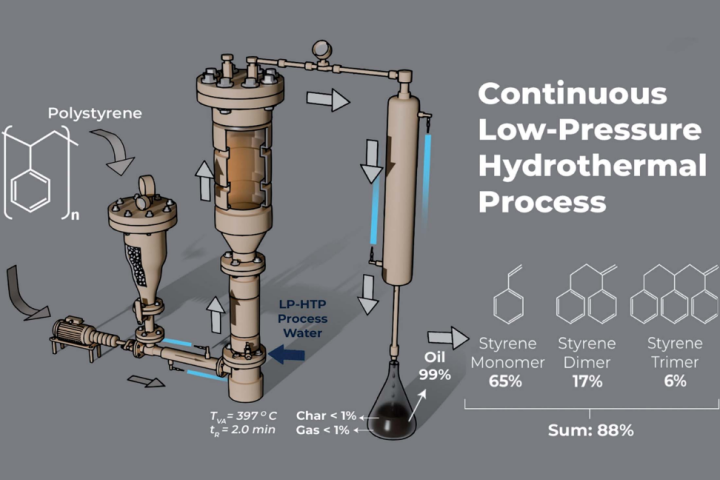
Chemical Conversion of Plastic Waste into Fuel
We specialize in the analysis of oil products derived from plastic waste depolymerization. Our research focuses on the development of advanced analytical methods for the detailed characterization and quantification of alkenes (olefins) in fuel-range distillates, including gasoline, jet fuel, and diesel. This work is strengthened through collaborations with leading experts, including Dr. Nien-Hwa Linda Wang (Purdue University; hydrothermal processing), Dr. Petr Straka (UCT Prague; hydrotreating of pyrolysis oils), Dr. Luis Cutz (Delft University of Technology; hydrothermal liquefaction), and Dr. Mingheng Li (California State Polytechnic University; catalytic pyrolysis).
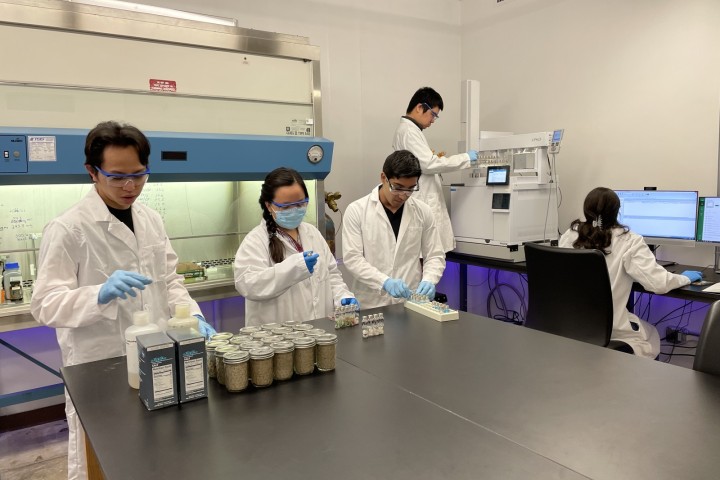
Microplastics Analysis
Microplastics (MPs) are small plastic fragments that are defined as 5 mm in size and below. Due to their extremely small size, they exist in our food, water, and even the air we breathe. Our research aims to qualitatively and quantitatively analyze organic compounds adsorbed on the MPs surfaces via GC-TOFMS and GC×GC-TOFMS using SPME fibers and pyrolysis autosampler. Since MPs are virtually undegradable, understanding the types of compounds adsorbed onto their surfaces will provide a deeper understanding of the toxicity of MPs.
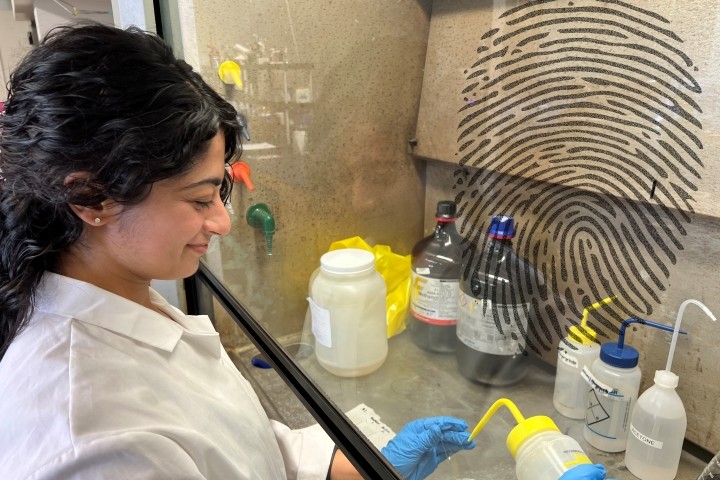
Time since Deposition/Aging Studies for Latent Fingerprints
In forensic science, determining the age of a fingerprint remains an elusive problem. Fingerprint residues represent a complex mixture of chemical components, including amino acids, saturated fatty acids, triglycerols, cholesterol, and squalene. We use GC-TOFMS and GCxGC-TOFMS to analyze these compounds.
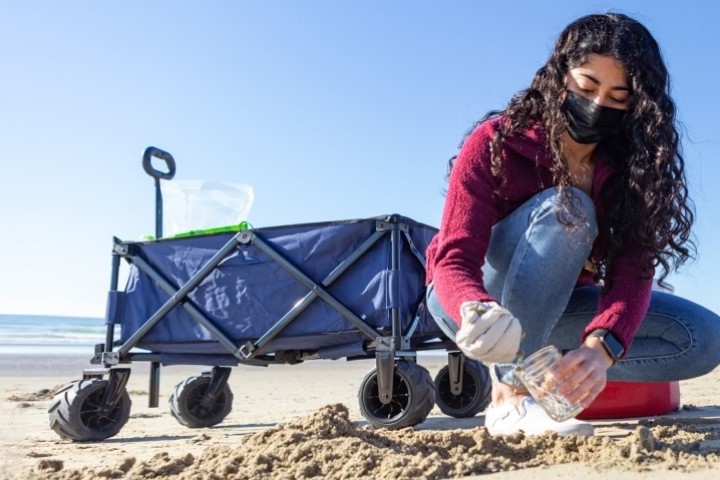
Oil Spill Impacts on the Environment
Our research focuses on the environmental consequences of oil spills. One project, in collaboration with Dr. Andrea Bonisoli-Alquati from Cal Poly Pomona, focuses on polycyclic aromatic hydrocarbons. We analyze the concentration of 16 EPA-priority PAHs in the livers of Seaside Sparrows exposed to the Deepwater Horizon oil spill that occurred on April 20, 2010. In a separate study, we investigate the October 2021 oil spill caused by a pipeline failure near the Port of Long Beach, which released approximately 140,000 gallons of post-production crude oil onto local beaches. Using comprehensive two-dimensional gas chromatography (GC×GC), this project examines the interactions between beach sands and crude oil to better assess potential human health risks associated with oil-contaminated shorelines. This research is supported by the California State University Council on Ocean Affairs, Science & Technology (COAST).
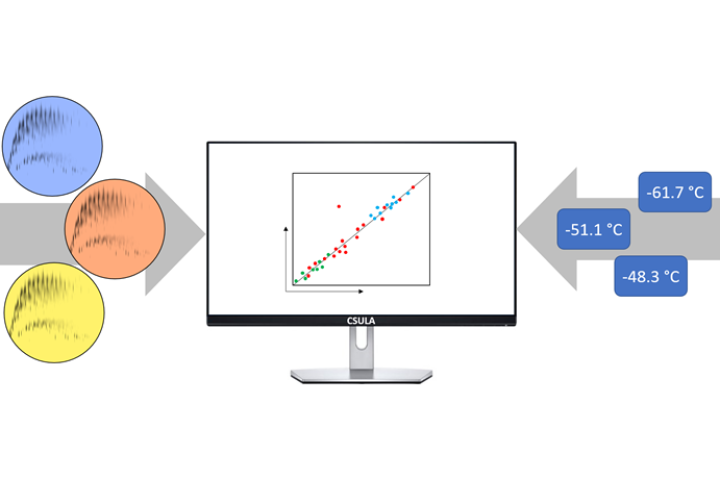
Chemometrics
Data analysis is an important step for extracting information from chemical systems. Our main goal is to fundamentally understand and describe how the chemical composition influences the properties of complex chemical mixtures on a molecular level. Current projects include the description of the relationship between hydrocarbon mixtures' chemical composition and their freezing points.